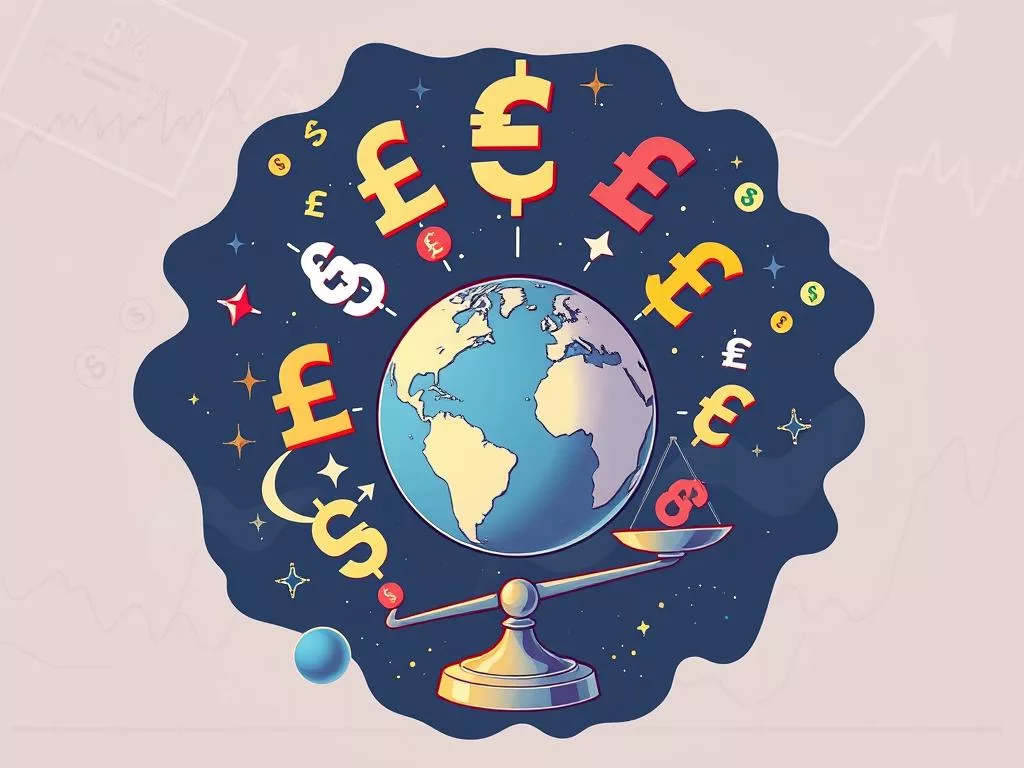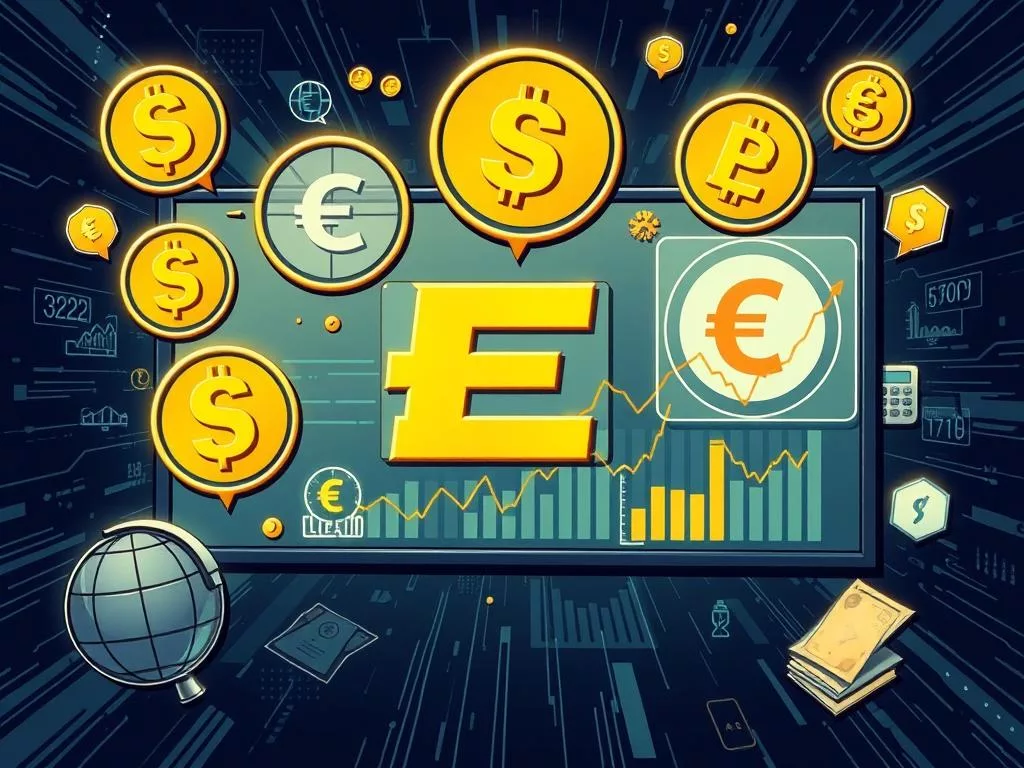Exploring international finance can be easier with the right tips. Exchange rates show how much one currency is worth compared to another. For example, how much a US dollar is worth compared to a British Pound. These rates change every day, based on things like interest rates and political stability.
It’s important to know about fixed and floating exchange rates. Fixed rates are set by a country’s central bank and are stable but less flexible. Floating rates, on the other hand, change based on the market and show the current economic situation. This info is useful for travel, investments, or business dealings abroad.
High fees by exchange providers can also affect your money’s value. For example, airport kiosks might charge up to 10 percent more than banks or ATMs. Using ATMs or credit cards without foreign fees can save you money.
For more on currency conversion, check out this guide on understanding exchange rates. It’s full of useful tips. Also, planning ahead and using the right financial tools can help you save money and make transactions easier.
Understanding Exchange Rates: The Basics
Exchange rates are key to knowing how different currencies compare. They affect global trade, tourism, and investments. For example, in June 2024, $1 could be exchanged for €1.07. This rate is important for decisions like importing goods or traveling.

Central banks manage exchange rates. There are two main types: fixed and floating. Fixed rates, like the Hong Kong dollar, are tied to the U.S. dollar. Floating rates, on the other hand, are set by the forex market. This market is huge, handling trillions of dollars daily.
These rates have a big impact on our daily money matters:
- A traveler converting $200 at an exchange rate of 1.05 would receive €190.48.
- At a current exchange rate of 1.02, the same amount would yield $67.32 for €66.
- A USD/JPY exchange rate of 110 gives ¥11,000 for $100.
Exchange rates deeply affect finance. Banks and credit unions often offer the best rates and lowest fees. Avoid exchange houses and airport kiosks because they have bad rates and high fees. Online tools like Currency Exchange International might also have less favorable rates than banks.
For those who travel a lot or live abroad, multicurrency accounts are great. They let you spend, receive, and hold different currencies. This is perfect for frequent travelers or expats.
In short, knowing about exchange rates is vital for smart financial choices. Central banks’ actions, like setting interest rates, influence these rates. For example, China sets a daily midpoint for the yuan, allowing it to trade within a 2% band. So, staying updated on these factors is key to confidently navigating the global financial scene.
Tools and Resources to Secure the Best Exchange Rates
Getting good foreign exchange rates is key for businesses and people who deal with international money. Using different tools and resources can make things cheaper and safer financially.

For instance, apps like RemitFinder show the latest rates for sending money abroad. They help users find the best rates. Also, following financial news can give clues on why rates change.
Modern tech offers great ways to get rate info in real-time. Companies like OFX have a big network of banks worldwide. This can save customers money on rates. OFX also has tools like Currency Outlook news and Rate Alerts to keep users updated. They are open 24/7 for over 50 currencies, making it easy to do business.
Advanced currency exchange APIs are also key. They let financial platforms get rate data right away. TraderMade’s Real-Time Exchange Rate APIs give traders and big businesses the info they need fast.
Platforms like Xe.com and Oanda are great for currency data. Xe.com updates rates for over 170 currencies every minute. Oanda offers services for more than 200 currencies, including a tool for looking at past rates for free. These tools are super helpful for keeping track of exchange rates.
The Pacific Exchange Rate Service, run by Professor Werner Antweiler, has lots of rate data from 1971. This huge database helps businesses and people deal with international money.
In the end, using these tools and resources can really help get the best exchange rates. It makes things more efficient and gives an edge in global markets.
Guide to Best Exchange Rates – Tips & Tricks
Getting the best exchange rates is more than just knowing the basics. Start by comparing rates from different places before you travel. This can save you money. Consider using forex cards, as they often have better rates and are safer than regular cards.
Keep an eye on how exchange rates change and the fees that come with them. Avoiding hidden fees can really add up. Banks like Monzo and Starling don’t charge fees for using their cards abroad. For longer stays, opening a local bank account might be smart.
Don’t buy currency at the airport, as rates are usually bad and choices are limited. Plan your currency exchange in advance. Use sites like XE.com to track rates and save money. Also, look for buy-back guarantees from currency exchange services, which can save you on unused currency. For more on currency exchange fees, check out this guide.

